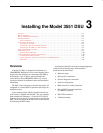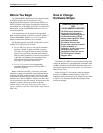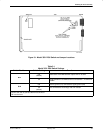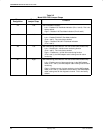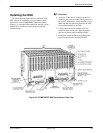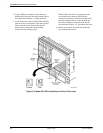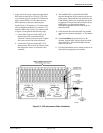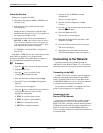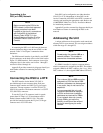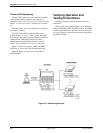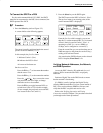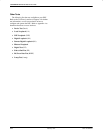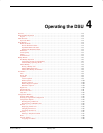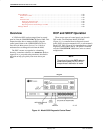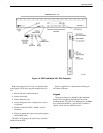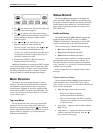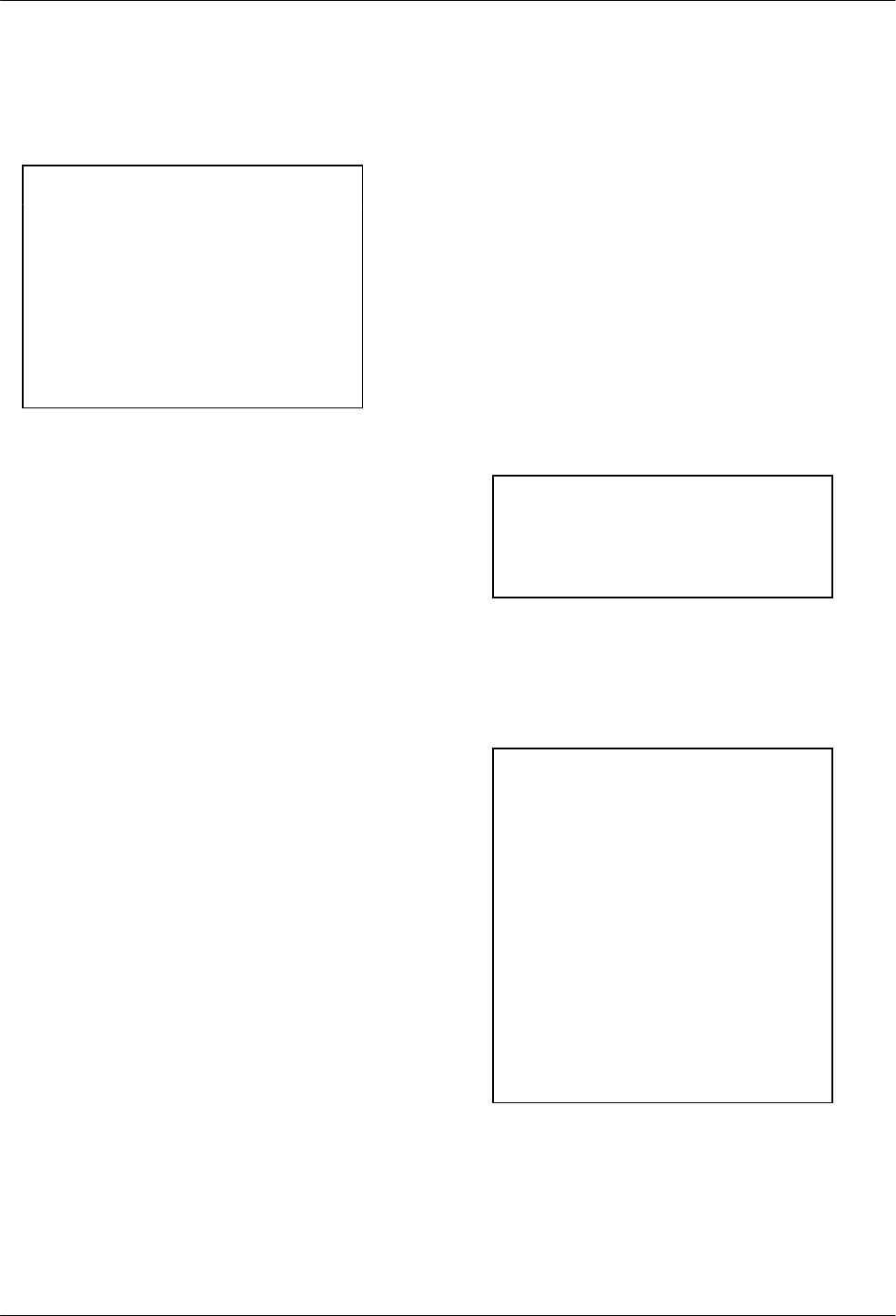
Installing the Model 3551 DSU
3-93550-A2-GB20-10 February 1995
Connecting to the
DDS (or LADS) Network
NOTE
Before connecting the DSU to the
DDS network, ensure that approved
primary protectors have been
installed on the circuit in accordance
with Article 800 of the National
Electric Code, NFPA 70, in the
United States and Section 60 of the
Canadian Electric Code, Part 1, in
Canada.
If connecting the DSU to a LADS network there are
distance limitations that govern the use of DSUs on the
network. Table 2-2 in Chapter 2 summarizes these
limitations.
The DDS network interface is provided by two RJ48T
50-pin connectors on the back of the carrier (refer back to
Figure 3-2, DDS Interface). Each connector serves eight
contiguous slots in the carrier: one for Slots 1 through 8
and one for Slots 9 through 16.
Appendix E provides connectivity diagrams should you
need further assistance in connecting the DSU to the
network.
Connecting the DSU to a DTE
The DTE interface for the Model 3551 DSU is
provided through its rear connector plate. Each rear
connector plate contains two DB25 (or 25-pin D-type)
connectors. The top connector is an EIA-232-D/V.24
(ISO 2110) connector. The bottom connector is a CCITT
V.35 (ISO 2593) connector.
To use the 25-pin V.35 connector (used for speeds
greater than 19.2 kbps), a V.35 interconnect cable is
needed (feature number 3000-F1-510). This cable
provides the interface between the 25-pin V.35 D-type
connector and a V.35 DTE cable.
Each DSU can be configured to use either interface
(EIA-232 or V.35) independent of other DSUs in the
carrier. Connection of the DSU to the DTE is a matter of
selecting and installing the appropriate cable. Refer to the
COMSPHERE 3000 Series Carrier, Installation Manual
for installation procedures.
Appendix E provides connectivity diagrams should you
need further assistance in connecting the DSU to the
network.
Addressing the Unit
A unique address must be assigned to each control and
tributary DSU in your network. You can assign an address
within the range of 1 through 255.
NOTE
Do not assign the number 192 as a
network address. This number is
reserved as a broadcast address.
If a DBM is installed, it requires a separate address
which is automatically assigned by the DSU. The address
assigned a DBM is the DSU’s address, plus 1 (e.g., if the
DSU’s address is 1, the assigned DBM address will be 2).
NOTE
The numbers 191 and 255 cannot be
assigned to a DSU that has a DBM.
However, addresses can be assigned
in any order; they do not have to be
sequential.
It is recommended that only
odd-
numbered addresses
be assigned
to DSUs so that
even-numbered
addresses
are reserved for DBMs
.
If your network does not currently
include DBMs, you retain the
flexibility to add them later without
having to reconfigure your entire
network.



